Internationalization
Excellent Evaluation for the Erasmus Plan Progress Report 2025
96/100. A great achievement for our Erasmus+ Plan 2022–27. We are proud to announce that the Accreditation Progress Report 2025 received an excellent evaluation from the Erasmus+ National Agency INDIRE, with the following motivation: “Liceo Messedaglia has implemented the Erasmus Plan with coherence, strategic vision, and widespread impact. The main objectives of the plan were effectively pursued through well-chosen and well-managed activities …”. An important acknowledgement that rewards the school's commitment to the design and implementation of European activities. Besides, the activities of the last year of the action Erasmus+ KA121 has been positively evaluated by the National Agency Erasmus+ INDIRE obtaining a score of 97 out of 100, according to qualitative criteria, financial rules and contractual regulations.
Evaluation criteria. The assessment was based on the quality of the activities carried out and the selection procedures; proper financial management; compliance with contractual regulations and Erasmus+ quality standards.
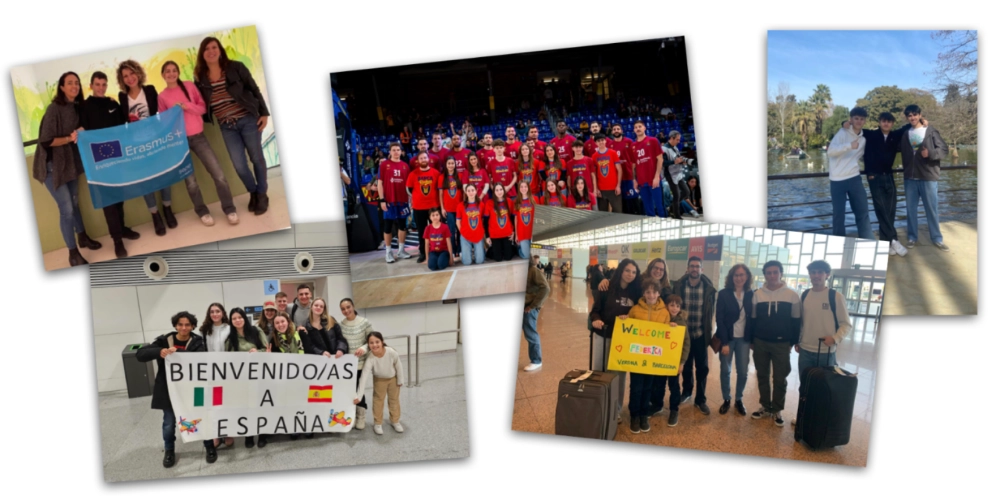
Date of evaluation: 22 December 2025
European Teachers in job shadowing at Messedaglia for the Erasmus+ Programme
From October 6th to 8th, 2025, the "Angelo Messedaglia2 Scientific High School had the pleasure of welcoming 15 teachers from Erasmus+ partner schools in Spain, Bosnia and Herzegovina, France, Germany, and the Netherlands.
The visit, part of the Erasmus+ Programme for the 2025/26 school year, included opportunities for professional exchange in the school library and job shadowing activities across various subjects. During the three days, the visiting teachers expressed great appreciation for the warm welcome they received and for the quality of the planned activities. “We found a high-level learning environment and met students full of enthusiasm,” commented a teacher from Spain. “Sharing classroom experiences with Italian colleagues has been truly inspiring and enriching,” added a teacher from the Netherlands.
The job shadowing experience once again proved to be an important opportunity for cultural and professional exchange, fostering the sharing of good practices and strengthening the European network of school collaboration.
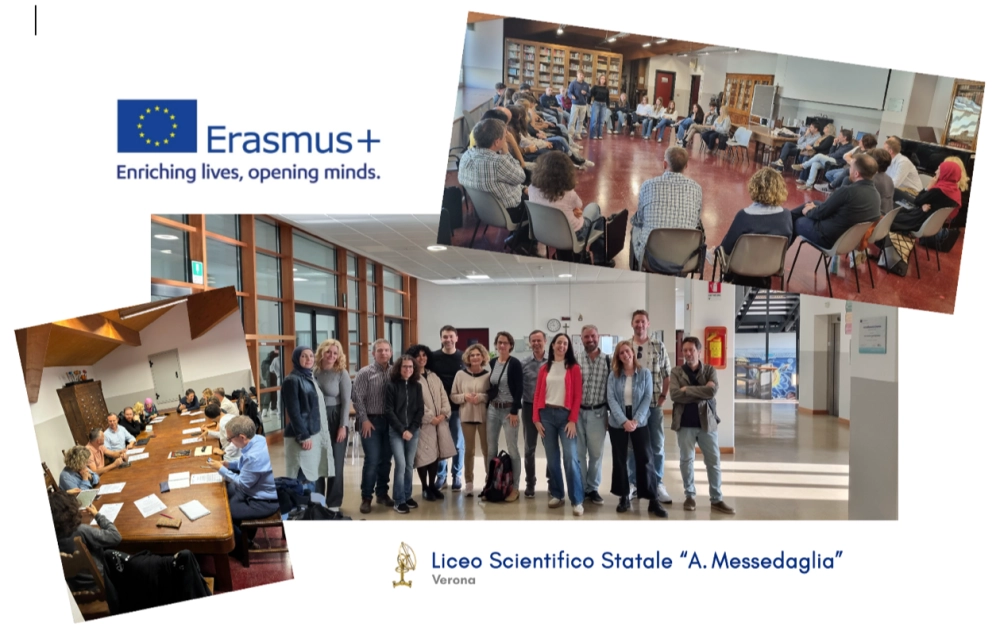
Angelo Messedaglia Scientific High School: A Century of Excellence in Education
The Liceo Scientifico Statale “Angelo Messedaglia” is an upper secondary school for students aged 14 to 19, located in the city of Verona in the region of Veneto (Italy).
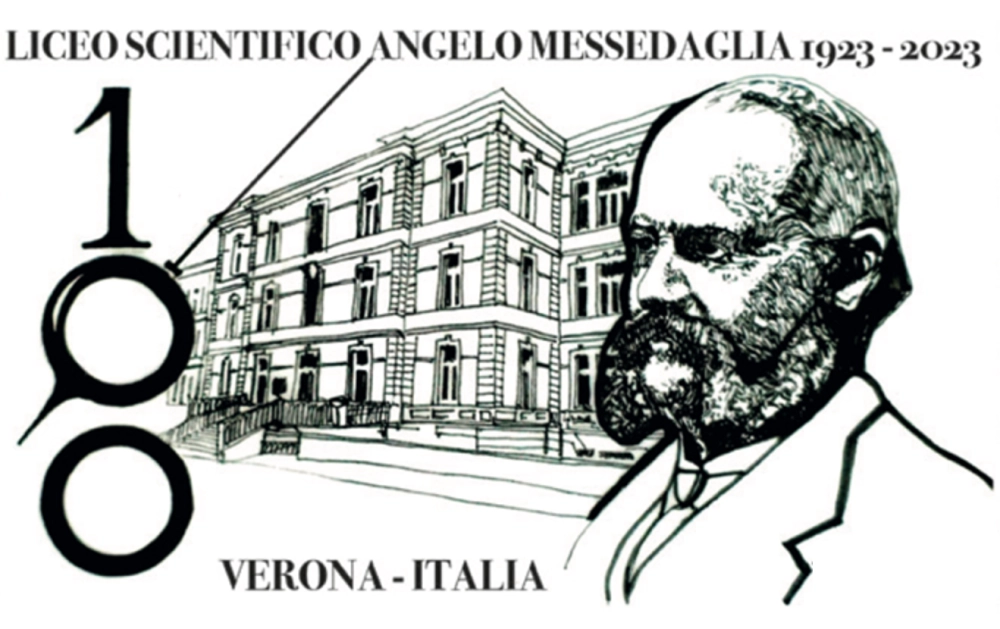
The institute’s educational mission is guided by key principles: fostering responsible citizenship, encouraging respect for others and the environment, and creating a peaceful, inclusive learning environment for all students.
Academic programs at the school strike a balance between the humanities and the sciences, while promoting independent learning skills essential for university studies. The school offers three main study paths:
- Traditional Scientific Curriculum: Includes an optional English language enhancement course during the first two years.
- Applied Sciences Curriculum: Offers optional enhancement courses in both English and robotics during the first two years.
- International Scientific Curriculum: Features physics and biology taught in English, following the Cambridge International Examination syllabus, recognized by several foreign universities.
The school’s strategic vision is outlined in the School Education Plan (Piano Triennale dell’Offerta Formativa – PTOF). It defines the cultural and educational identity of the school and is publicly available.
|
Liceo Scientifico Statale “Angelo Messedaglia” introduction |
|
|
School data: |
· https://cercalatuascuola.istruzione.it/cercalatuascuola/istituti/VRPS04000B/a-messedaglia/ |
|
Other documents and videos: |
· https://www.youtube.com/channel/UCCOPtW_YnCnbl8fStfYoGBA · https://youtu.be/BDSQdSjK_V4 · https://view.genial.ly/5fad4ca967037b0d18c9a71c/guide-presentazione-liceo-messedaglia-20222023 |
Erasmus+ accreditation in the field of school education
Since February 2022, Liceo Messedaglia has been a beneficiary of the Erasmus+ accreditation in the field of school education as a single institution until 31/12/2027 (KA120 action) and it has submitted an Erasmus+ Plan for the period 2022-27. It defines our long-term strategy for implementing pupil and school staff mobility activities to improve the quality of learning and teaching in compliance with the Erasmus Quality Standards. It has the following three specific objectives:

These objectives are consistent with the policy framework already in place, the Agenda 2030 sustainable development goals and the most recent ministerial guidelines. They will contribute to fulfilling our institute's stated commitment to carry out concrete activities and actions within the key themes of the Erasmus+ programme, which cover:
- Inclusion and diversity: respecting the principles of inclusion and diversity in all aspects of its activities, ensuring fair and equal conditions for all participants.
- Environmental sustainability: promoting environmentally responsible and sustainable behaviour among the participants, raising awareness about the importance of acting to reduce or compensate for the environmental footprint of mobility activities and supporting the use of sustainable means of transport.
- Digital transformation in education and training: using digital tools and learning methods to complement their physical activities, improving the cooperation between partner organizations, and the quality of their learning and teaching.
- Participation in democratic life: discovering the benefits of active citizenship and participation in democratic life. Supported mobility activities should reinforce participatory skills in different spheres of civic society, as well as the development of social and intercultural competencies, critical thinking and media literacy.
With the Erasmus+ accreditation KA120 it is possible to receive regular funding for mobility activities that contribute to the gradual implementation of the Erasmus Plan by submitting yearly only one budget request as a KA121 action to the Erasmus+ National Agency INDIRE https://www.erasmusplus.it/.
Furthermore, the Liceo Messedaglia has committed to the proper management of learning mobility activities, in particular to:
- keeping ownership of core implementation tasks and to not outsourcing these tasks to other organisations;
- ensuring compliance with the principles of non-discrimination, transparency and inclusion that characterise the Erasmus+ programme, ensuring equality and equity in terms of access and opportunities for current and future participants from all socio-economic backgrounds;
- supporting environmentally friendly practices in all programme-related activities, in order to promote civic engagement and encourage the involvement of students and teachers - as active citizens - before, during and after participating in a mobility activity or cooperation project;
- integrating the results of the mobility activities carried out into their regular activities (e.g., knowledge acquired by teachers and administrative staff in the field of professional development) for the benefit of the school community.
A Strategic Plan for Internationalization
A Strategic Plan for Internationalisation is proposed to increase the internationalisation of the school. It aims at expanding the international dimension of the entire school community - students, teachers and administrative staff - and is concretely embodied in the Action Plan for Internationalization and the Plan of Activities, which in turn provide the basic indications for the forthcoming drafting of the School Regulations for teacher and pupil mobility abroad, another fundamental document for the implementation of individual pupil long-term mobility projects.

To sum up, the Erasmus+ programme plays an essential role in enhancing the opportunities for internationalization that our school will be able to offer starting each school year. A larger number of teachers and students could take advantage of new educational opportunities, without neglecting the situations of economic disadvantage that would not normally allow some students to access international mobility projects.
Erasmus learning mobility activities will not replace the opportunity for a year abroad, nor the possibility of organising English language courses abroad, educational trips and cultural exchanges, but it will be a new opportunity and, above all, a great responsibility for our school in the future. It is not a funded activity for the cultural growth and disciplinary deepening of single pupils but a dynamic and evolving project for the whole school community.
Long-term learning mobility of one or more pupils, for a period of one or two months, represents the most appropriate combination for participating in mobility opportunities abroad. It must be customised, realistic, shared by the classroom boards, also to guarantee the participants a clear identification of the minimum knowledge necessary to fill in possible gaps in learning contents upon return and to avoid a de facto doubling of the study load.
The action plan for internationalization
An essential tool for the implementation of planned activities and also for the assurance of quality of learning mobility and cooperation projects is the Action Plan for Internationalization. It is proposed to integrate the current school planning with the defined Erasmus+ Plan of the school and structured into four action steps for a strategic macro-objective and two action steps for an organizational macro-objective.
Specific attention is ensured to the relevance of the planned activities and the coherence with the objectives and priorities of the Erasmus+ Plan. To coordinate the activities foreseen in the Action Plan for Internationalization, it has been deemed appropriate to proceed with the establishment of a Commission for Internationalization and European programmes with strategic and organizational tasks.
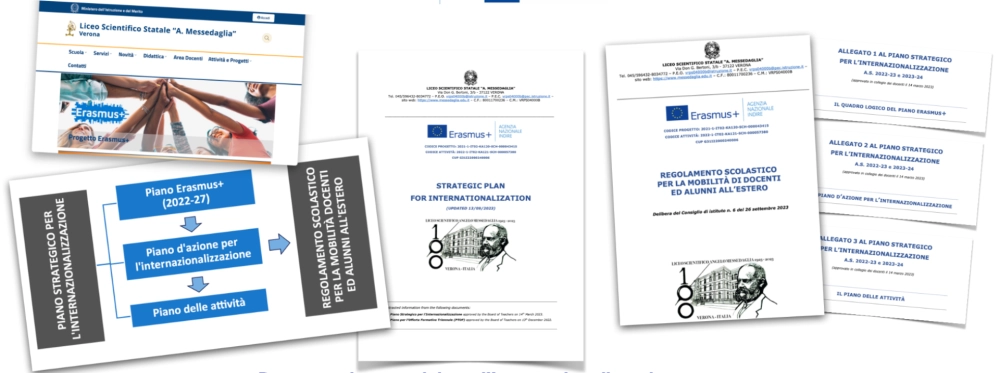
The plan of activities
Within the framework of the first three years of the KA121 action financed by the EU through the Erasmus+ National Agency INDIRE, the Liceo Scientifico Angelo Messedaglia successfully implemented the following activities:
62 students in short and long-term individual learning mobility in Spain, France and Germany
103 students in short-term group mobility with projects as the “Restoration and Urban Planning: A Bridge from the Past into the Future” , "Between water and colors: a bridge between Verona and Amboise", "Building the Future Together: A European Mobility Experience" and participating to the "European Voices Eutin Project"
10 teachers have had a job shadowing experience abroad with the aim of shadowing and observing other lecturers in practical day-to-day work situations in the host organisation in order to improve their teaching methods, exchange good practices, develop new knowledge and skills, stimulate comparison and develop critical thinking.
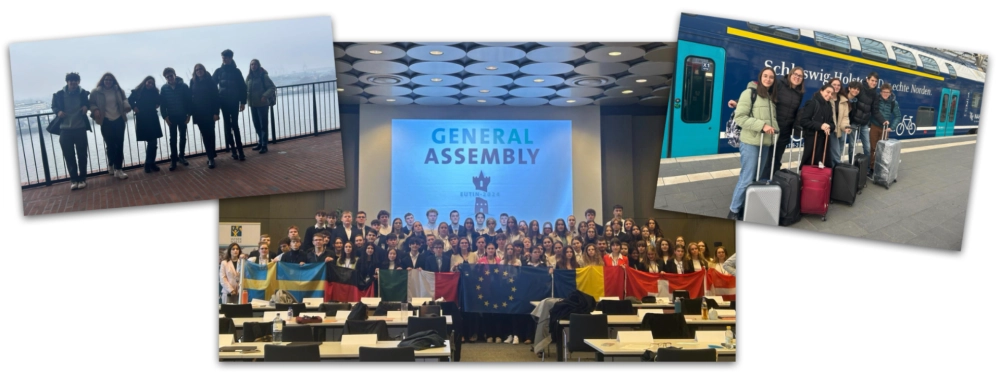
Starting from these practices, it is deemed appropriate to proceed with the drafting of a Plan of Activities for each school year to be submitted annually to the Board of Teachers for its approval.
Besides, our School Education Plan (PTOF) includes a series of activities aimed at the formation of an active and aware European citizen, substantially in continuity with the objectives for internationalization, such as:
- organizing language courses for students and school staff, aimed at obtaining linguistic certifications from accredited bodies;
- activating an international course that adheres to the IGCSE Cambridge project and of activities for the enhancement of English language teaching with voluntary participation;
- carrying out cultural exchanges with foreign educational institutions.
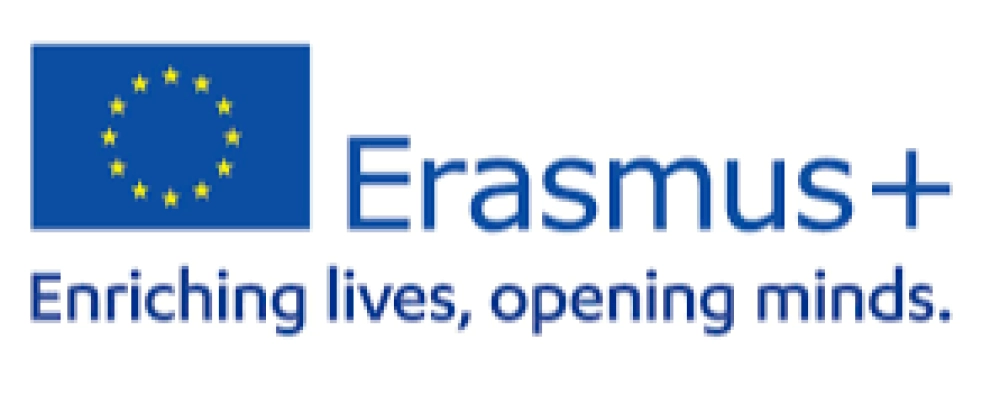
Ultima revisione il 13-02-2026



